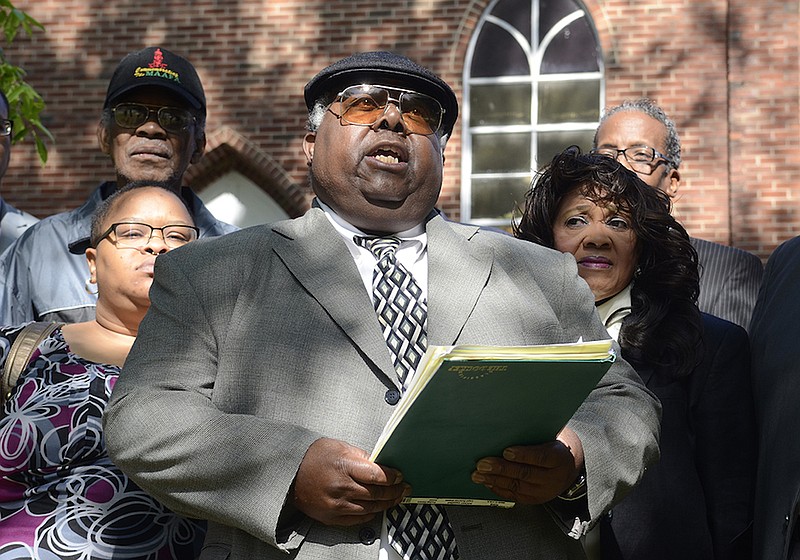The life and legacy of longtime Chattanooga community activist Sherman Matthews, who died earlier this month at 73, will be celebrated Saturday.
Presided over by Rev. Paul McDaniel at Second Missionary Baptist Church at 1 p.m., a funeral service will be open to limited attendance because of lingering concerns over the spread of COVID-19. Video will be available for any overflow crowd.
Matthews grew up in Chattanooga and graduated from Howard High School, studied sociology at Kentucky State University and earned a master's degree in community counseling from the University of Tennessee at Chattanooga. He worked for more than three decades for the state of Tennessee supervising foster care and juvenile justice units, as well as juvenile probation and after-care services for 11 counties.
In the 1990s, Matthews served on the Chattanooga school board before the city and Hamilton County school systems merged, and he remained vocal about education inequities suffered by Black, Hispanic and poor public school students until his death. He was named to the Hamilton County Schools Equity Task Force in 2018, and this spring Matthews spoke out against proposed legislation to continue Tennessee's embattled and mostly charter-run Achievement School District.
"We reject the negative over-reliance on high stakes testing to be the sole determinant of a student's growth and potential when TN Ready has not been ready in five years and can't account for career and technical education, the digital divide or achievement gaps," he co-wrote in an editorial published statewide.
As most recent chairman of the Chattanooga/Hamilton County Unity Group, which organized in 1969 to get more Black candidates elected to positions in local government and was the driving force behind the renaming of Ninth Street to M.L. King Boulevard., Matthews helped lead annual events commemorating King and engaged the Unity Group in efforts to push back against accelerating local development.
"Low income (communities) and communities of color are being devastated by gentrification with no input from the people that live in those communities," Matthews said in 2018, speaking as part of a community coalition opposed to the rezoning of the former Harriet Tubman public housing site from residential to manufacturing. "We all pay taxes, and if we're going to make this community a better place to live, it has to be for everybody."
Since receiving news of his death, local leaders and activists have remembered him on social media, noting an absence felt in his passing.
"It was my privilege to march along with Sherman, starting sometime back in the early '70s," former Chattanooga Mayor Ron Littlefield wrote on Facebook. "It troubles me greatly to see so many old soldiers gone when their battle is not yet over."
"Sherman Matthews was a force, a 'drum major' for social justice," Helen Burns Sharp, founder of Accountability for Taxpayer Money, wrote on Facebook. "Sherman is a role model for commitment, persistence and willingness, on occasion, to engage in some 'good trouble.'"
Eric Atkins, who works with the Unity Group, read the words of a famous gospel song in honor of his longtime friend and mentor on the Second Chance Radio Broadcast he's co-hosted on 93.5 FM each Sunday for the past five years with Matthews and pastor Charlotte Williams.
"If I can help somebody as I travel along. If I can help somebody with a word or song. If I can help somebody from doing wrong. No, my living shall not be in vain."
Contact Joan McClane at jmcclane@timesfreepress.com.
